PROFILE
The purpose of the Mathematics Undergraduate Study Program (S1) is to provide opportunities for a high-quality learning process for students to improve their abilities, motivation and learning behaviors as well as a high work ethic. Students will be given an understanding and development of the fundamentals of mathematics, which are divided into three groups of courses, namely analysis and algebra, applied mathematics (system modeling and simulation, optimization problems, industrial mathematics) and computer science (computational science and data science).
VISION
The purpose of the Mathematics Undergraduate Study Program (S1) is to provide opportunities for a high-quality learning process for students to improve their abilities, motivation and learning behaviors as well as a high work ethic. Students will be given an understanding and development of the fundamentals of mathematics, which are divided into three groups of courses, namely analysis and algebra, applied mathematics (system modeling and simulation, optimization problems, industrial mathematics) and computer science (computational science and data science).
MISION
The purpose of the Mathematics Undergraduate Study Program (S1) is to provide opportunities for a high-quality learning process for students to improve their abilities, motivation and learning behaviors as well as a high work ethic. Students will be given an understanding and development of the fundamentals of mathematics, which are divided into three groups of courses, namely analysis and algebra, applied mathematics (system modeling and simulation, optimization problems, industrial mathematics) and computer science (computational science and data science).
GOALS
The purpose of the Mathematics Undergraduate Study Program (S1) is to provide opportunities for a high-quality learning process for students to improve their abilities, motivation and learning behaviors as well as a high work ethic. Students will be given an understanding and development of the fundamentals of mathematics, which are divided into three groups of courses, namely analysis and algebra, applied mathematics (system modeling and simulation, optimization problems, industrial mathematics) and computer science (computational science and data science).
Profil Lulusan
| Code | Profiles | Description |
|---|---|---|
| PL-1 | Practitioner in Finance, Banking, and Insurance | Apply knowledge and skills in the fields of finance, banking, and insurance, based on mathematical and statistical methods |
| PL-2 | Data Analyst | Apply knowledge and skills based on mathematical thinking in data processing and programming to analyze data and its applications. |
| PL-3 | Educators | Apply mathematical knowledge and skills to provide learning of mathematics courses and related fields. |
| PL-4 | Logistics Expert | Apply knowledge and skills based on optimization mathematics in managing logistics. |
| PL-5 | Entrepreneurship | Apply knowledge and skills in a mathematical thinking framework related to creative business and entrepreneurship |
| PL-6 | Research assistant | Apply knowledge and skills in mathematics and data processing in the field of research. |
Program Learning Outcome (PLO)
| Code | Description of PLO |
|---|---|
| PLO1 | Able to show an attitude of piety to God Almighty by carrying out His sharia in daily life and supporting moderate universal Islamic ethics |
| PLO2 | Able to show an inclusive outlook on life and be able to get along in the global community while maintaining Islamic and Indonesian identity. |
| PLO3 | Students are able to show a responsible attitude and are committed to the enforcement of laws, ethics, norms for community life and environmental sustainability based on moderate Islamic values and local wisdom values |
| PLO4 | Mastering basic mathematical concepts includes logical/analytical proof construction, modeling and solving simple problems, and computing |
| PLO5 | Mastering theoretical concepts in one of the fields of mathematics, namely mathematical modeling, stochastic modeling, systems optimization and computer science and applying them in analyzing, designing, and evaluating problem solving |
| PLO6 | Able to study and utilize science and technology in order to apply it in the field of mathematics and/or statistics, and able to make appropriate decisions from their own or group work in the form of final project reports or other forms of learning activities whose outputs are equivalent to the final project through logical, critical, systematic and innovative thinking. |
| PLO6 | Able to manage learning independently, and develop themselves as lifelong learners to compete at the national and international levels, in order to make a real contribution to solving problems by implementing information and communication technology and paying attention to sustainability principles and understanding technology-based entrepreneurship. |
| PLO8 | Able to apply and develop mathematical thinking, which begins with procedural/computational mastery including exploration, logical reasoning, generalization, abstraction, and formal evidence. |
| PLO9 | Able to observe, identify, formulate, and solve problems through a mathematical approach with or without the assistance of technology. |
| PLO10 | Able to reconstruct or modify and think structurally about mathematical models and/or statistical models of a real problem, as well as assess accuracy and interpret results. |
| PLO11 | Able to take advantage of various mathematical problem-solving alternatives that have been available independently or in groups for informed decision-making. |

